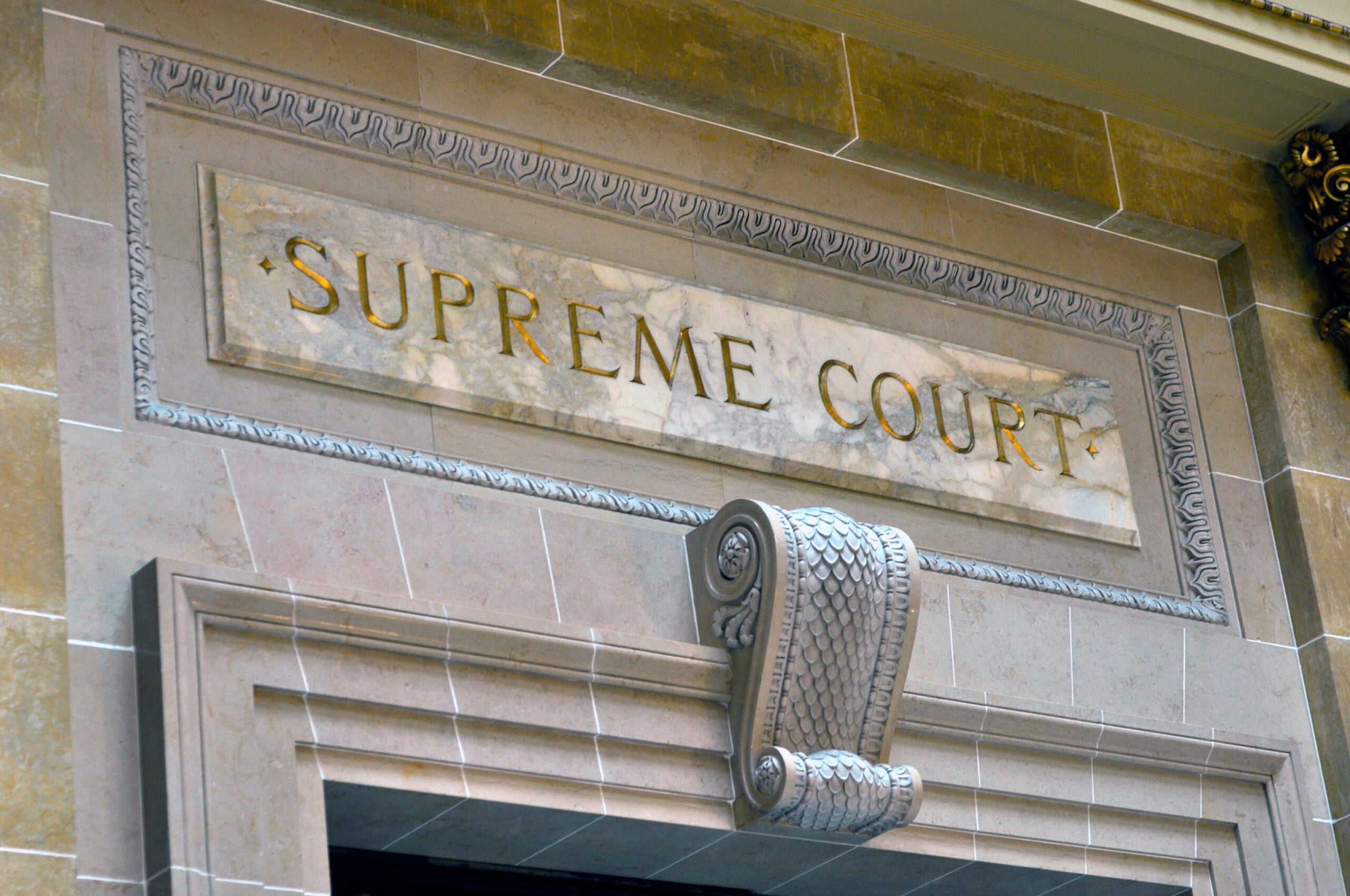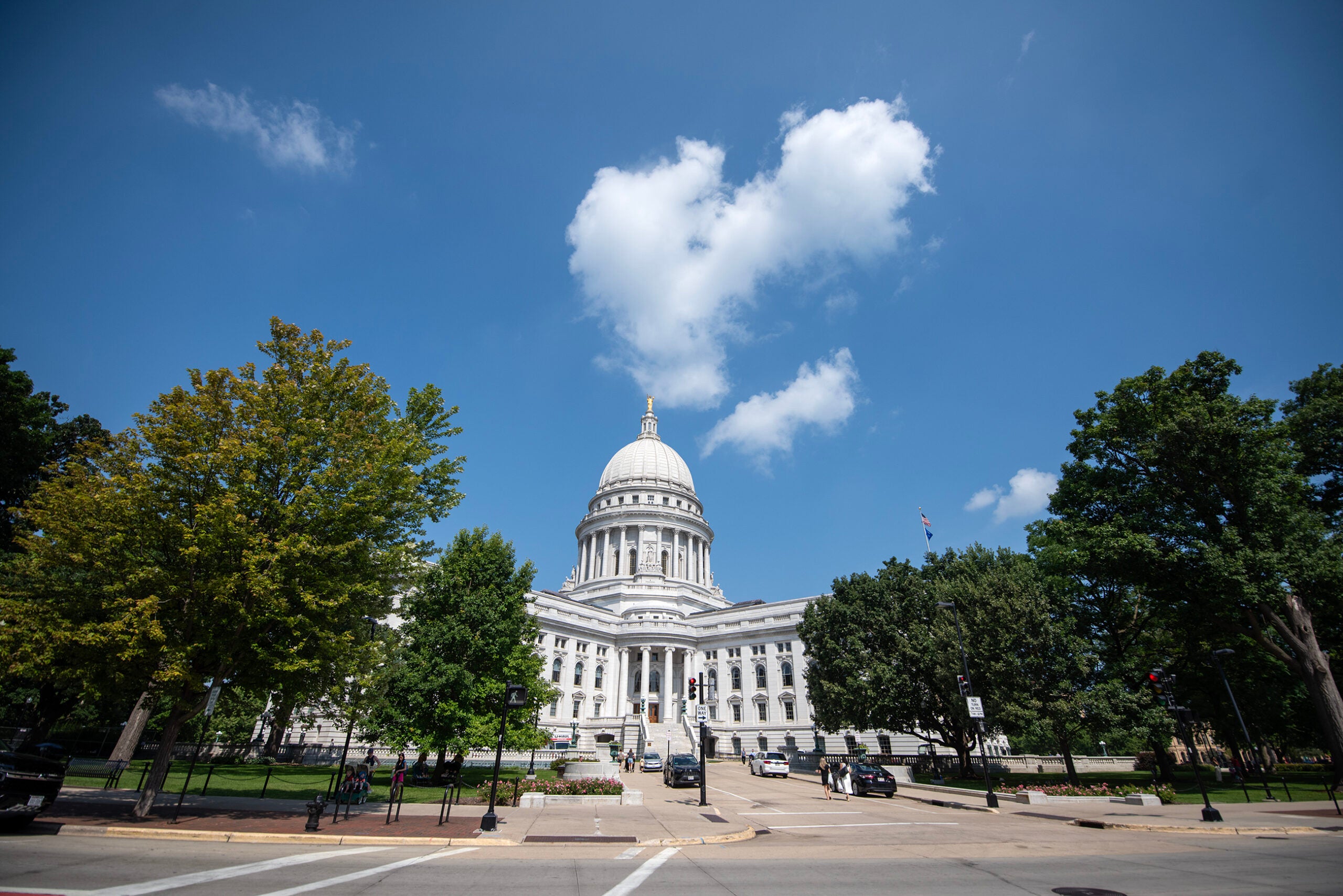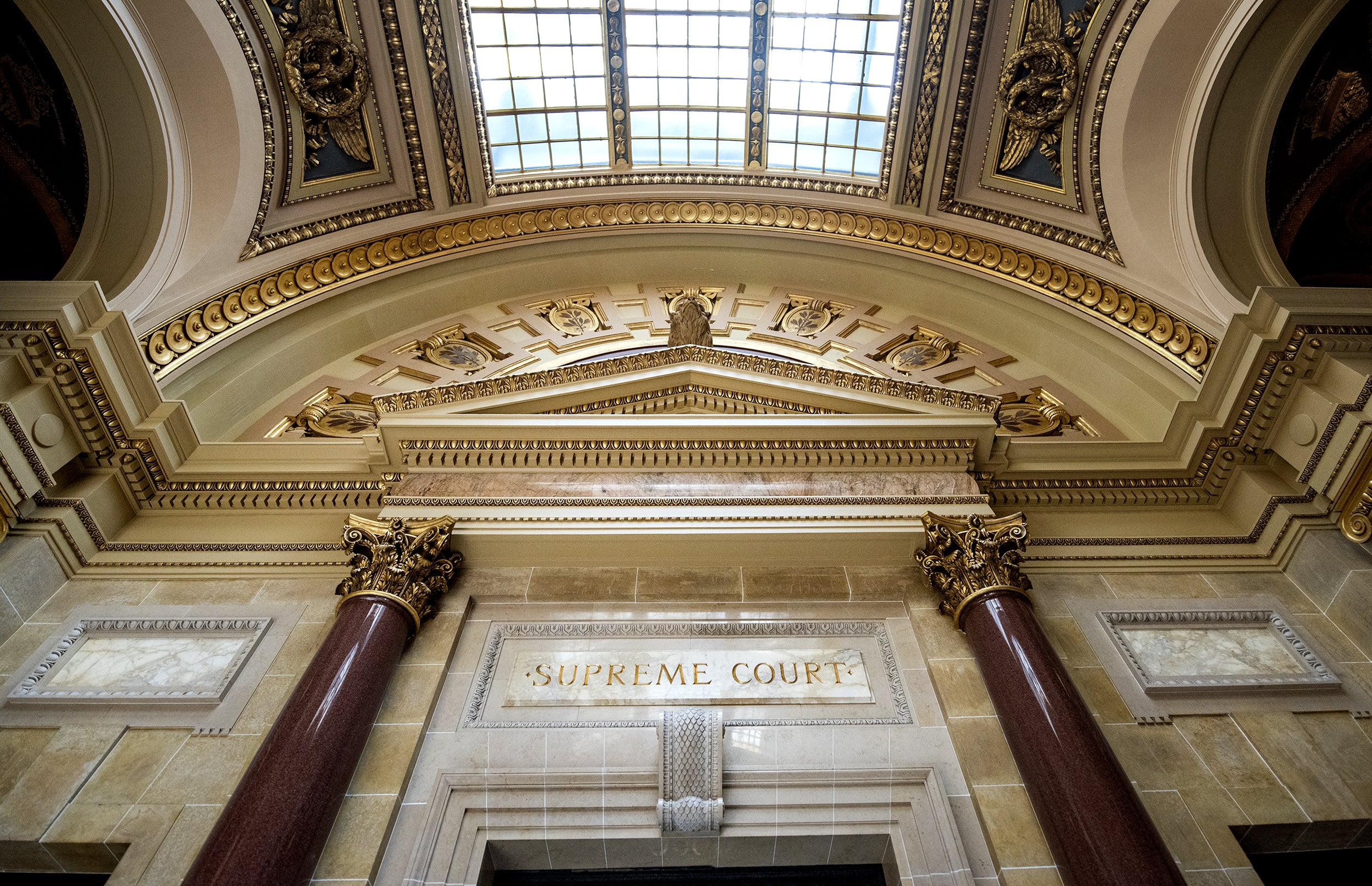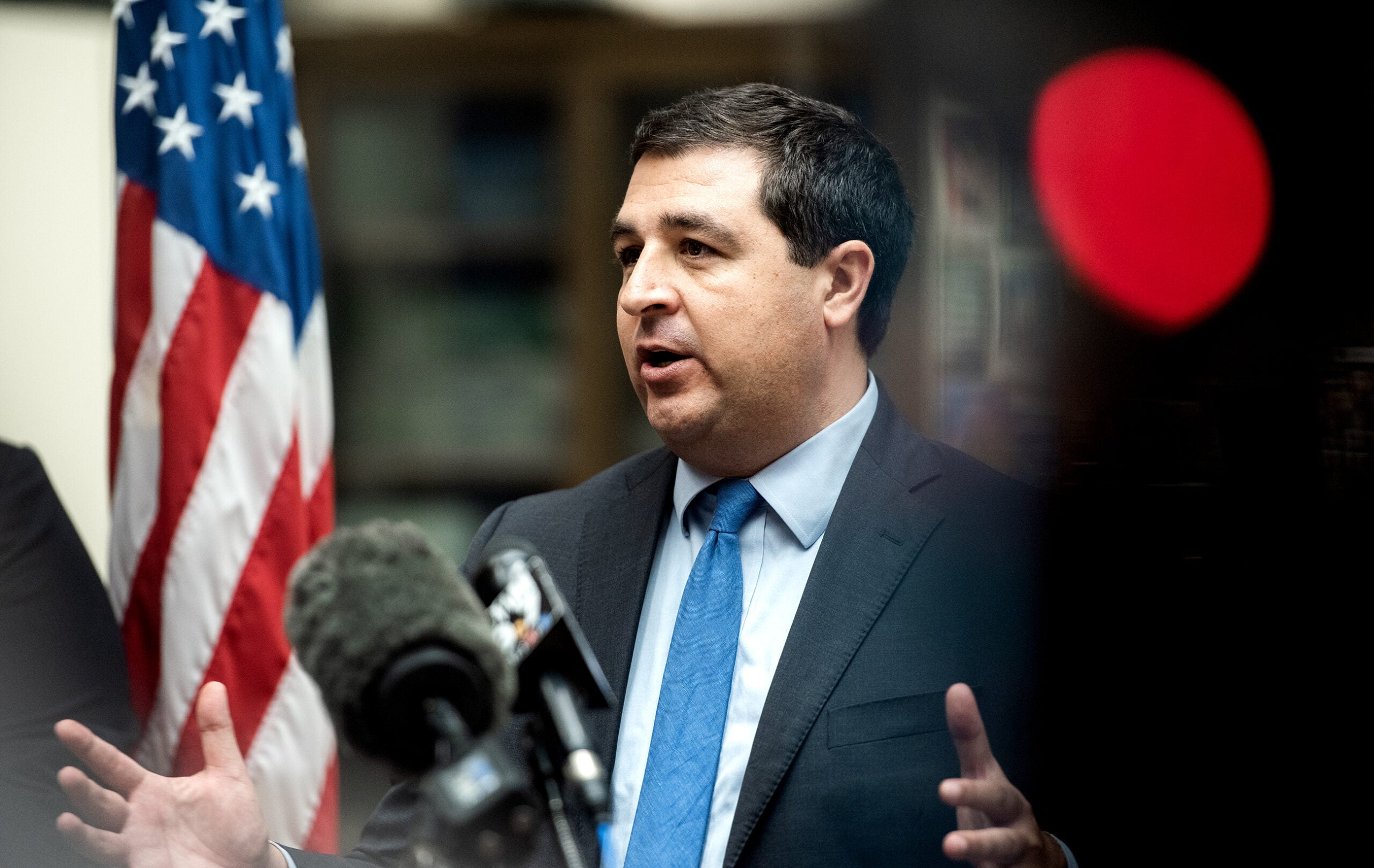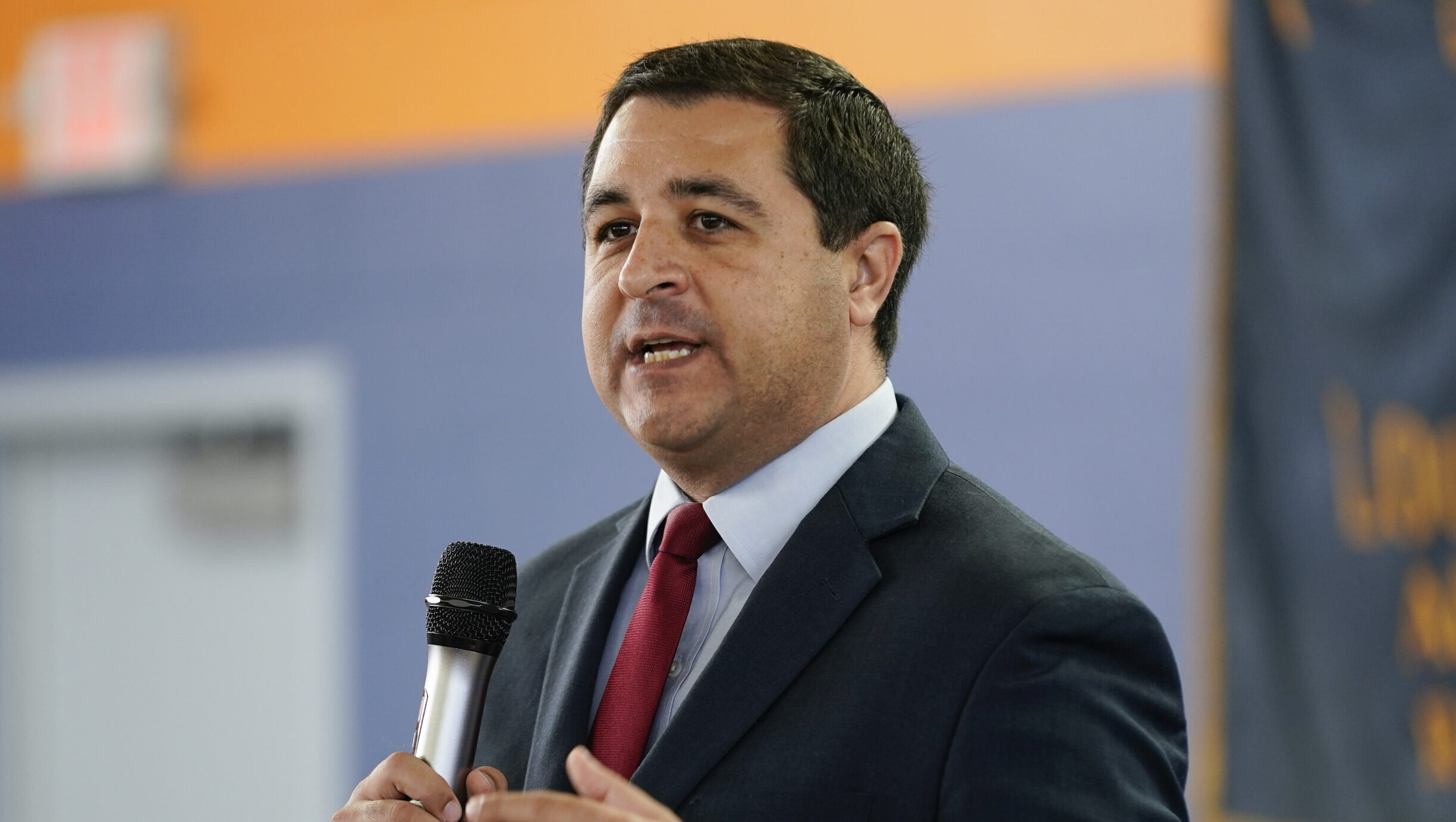The Wisconsin Supreme Court has ruled for a second time to mostly uphold Republican-backed laws that limit the power of Democratic Gov. Tony Evers and Attorney General Josh Kaul.
In an opinion issued Thursday morning, the court ruled against a union group that argued laws passed during December 2018’s lame-duck legislative session violate the state constitution’s separation of powers guarantee by infringing on the executive branch’s authority.
The laws upheld by the court’s decision do things like give lawmakers more power to intervene in lawsuits involving the state, to approve legal settlements involving the state, and to block administrative rules written by the Evers administration.
News with a little more humanity
WPR’s “Wisconsin Today” newsletter keeps you connected to the state you love without feeling overwhelmed. No paywall. No agenda. No corporate filter.
The requirement for the attorney general to seek approval before settling any lawsuits involving the state has led to a standoff between Kaul and GOP lawmakers, affecting a number of cases, some of which could bring millions of dollars into state coffers.
In the court’s majority opinion, Justice Brian Hagedorn wrote the union group didn’t prove all applications of those lame-duck limits are unconstitutional.
“Each of these provisions can be lawfully enforced as enacted in at least some circumstances,” Hagedorn wrote.
The court ruled unanimously to uphold the law related to administrative rules, as well as a law that gives legislators more power over changes to security at the Capitol Building. It split 5-2, along the court’s partisan lines, on the issues related to lawsuits and legal settlements. The court’s conservatives ruled to uphold the laws, while the two liberal justices dissented.
While the court upheld the majority of the laws outlined in the case, it struck down a measure passed during the lame-duck session related to so-called “guidance documents” — public information documents written and released by the governor’s administration.
The lame-duck change put more legislative approval requirements on those documents, which the court found to be unconstitutional.
A bipartisan alliance of four justices agreed on the majority opinion on that issue. Conservative Justices Daniel Kelly and Rebecca Bradley joined with liberal Justices Ann Walsh Bradley and Rebecca Dallet for the majority ruling.
“We conclude that when the legislature prohibited the executive branch from communicating with the public through the issuance of guidance documents without first going through a pre-clearance process and including legislatively-mandated content, it invaded the executive branch’s exclusive province to ‘take care that the laws be faithfully executed,’” Kelly wrote in the court’s majority opinion on the issue.
Several other laws passed during the lame-duck session, including measures that require legislative approval for seeking federal waivers to implement state laws, were not addressed in the decision. In its ruling, the court sent the case back to a lower court, where more arguments could be heard about those other laws.
The lame-duck session was held shortly after Evers was elected to replace Republican Gov. Scott Walker. Republicans have defended the changes as a way to ensure an appropriate balance of power between the Democratic governor and attorney general and GOP-controlled Legislature.
Responding to the ruling on Thursday morning, Evers said Republicans have been working against him since his election, calling them “sour grapes.”
“We had a race for governor in 2018. I won. Unfortunately, things got off on the wrong foot because Republicans immediately passed a law overriding the will of the people and the election, and they’ve been sour grapes ever since,” he said.
Kaul said he believes there will be future challenges to the lame-duck laws.
“I think it’s inevitable that ultimately the majority of applications of these laws is going to be found to be unconstitutional,” he said, noting the case looked at broad applications of the laws and left out many specific scenarios that may be unconstitutional.
Meanwhile, Republican Senate Majority Leader Scott Fitzgerald, R-Juneau, and Assembly Speaker Robin Vos, R-Rochester, lauded the Supreme Court’s decision.
“Today’s ruling is a victory for the Legislature and all Wisconsinites who want to hold government accountable,” Fitzgerald said in a prepared statement. “A rogue attorney general can no longer unilaterally settle away laws already on the books and unelected bureaucrats can’t expand their powers beyond what the people have given them through their representatives.”
Vos said the ruling “reaffirms that each branch is equal to the other.”
“This idea runs counter to what the governor and attorney general seem to believe,” Vos said. “They deem the executive branch is the most important one and should unilaterally rule over the state.”
The case is one of four legal challenges to the lame-duck session.
The Supreme Court ruled in favor of GOP lawmakers in the other state-level legal challenge to the lame-duck laws in June 2019. A federal appeals court last month ruled mostly in favor of the GOP in a long-awaited case that dealt specifically with voting law changes. A second federal challenge is awaiting a decision by the 7th Circuit Court of Appeals in Chicago. The court heard arguments in that case on May 18.
Editor’s note: This story has been updated to clarify that the decision did not address the governor’s power to direct the state to leave federal lawsuits or to seek federal waivers for implementing state laws.
Wisconsin Public Radio, © Copyright 2026, Board of Regents of the University of Wisconsin System and Wisconsin Educational Communications Board.

